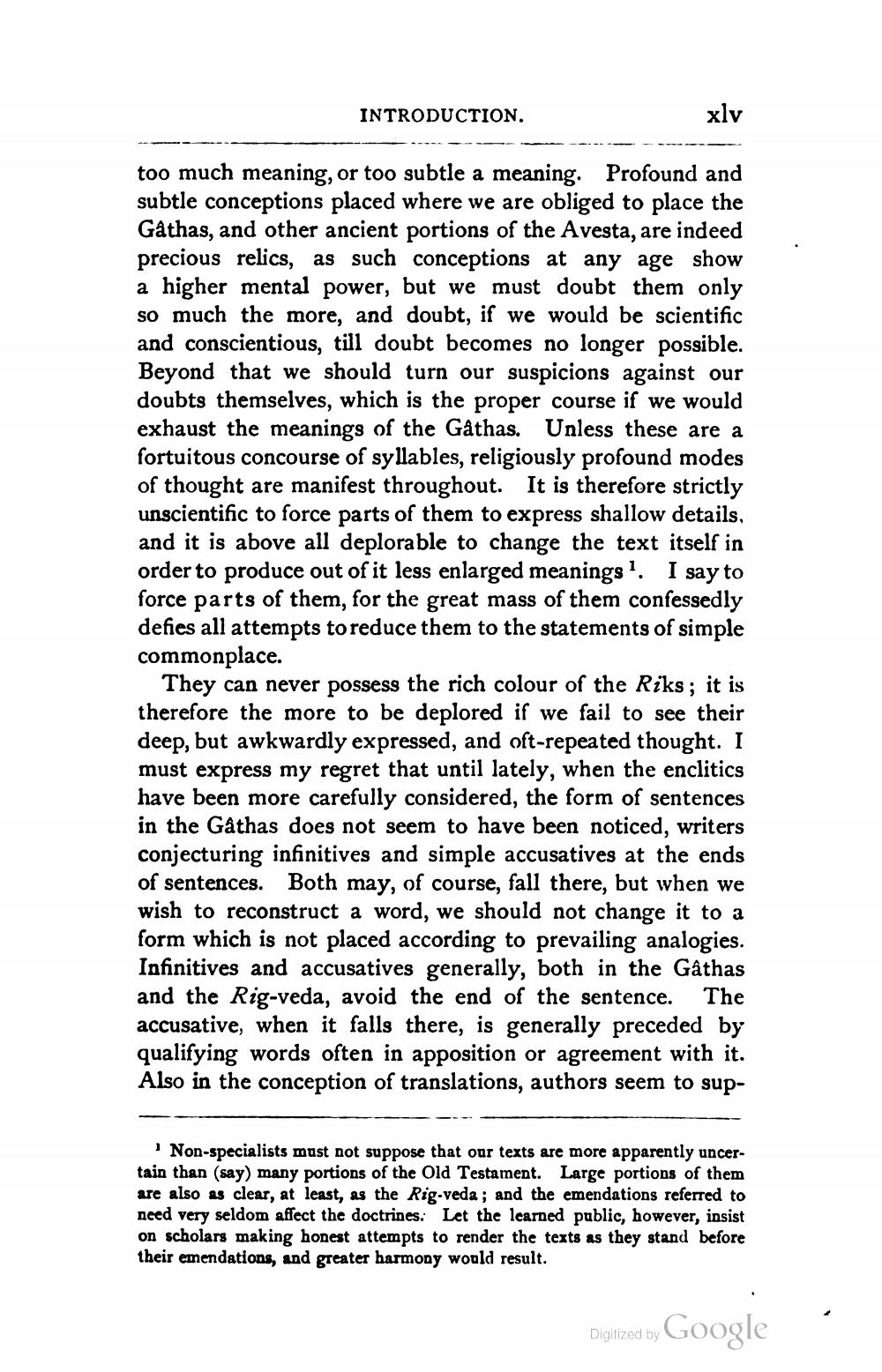________________
INTRODUCTION.
xlv
too much meaning, or too subtle a meaning. Profound and subtle conceptions placed where we are obliged to place the Gathas, and other ancient portions of the Avesta, are indeed precious relics, as such conceptions at any age show a higher mental power, but we must doubt them only so much the more, and doubt, if we would be scientific and conscientious, till doubt becomes no longer possible. Beyond that we should turn our suspicions against our doubts themselves, which is the proper course if we would exhaust the meanings of the Gåthas. Unless these are a fortuitous concourse of syllables, religiously profound modes of thought are manifest throughout. It is therefore strictly unscientific to force parts of them to express shallow details, and it is above all deplorable to change the text itself in order to produce out of it less enlarged meanings 1. I say to force parts of them, for the great mass of them confessedly defies all attempts to reduce them to the statements of simple commonplace.
They can never possess the rich colour of the Riks; it is therefore the more to be deplored if we fail to see their deep, but awkwardly expressed, and oft-repeated thought. I must express my regret that until lately, when the enclitics have been more carefully considered, the form of sentences in the Gathas does not seem to have been noticed, writers conjecturing infinitives and simple accusatives at the ends of sentences. Both may, of course, fall there, but when we wish to reconstruct a word, we should not change it to a form which is not placed according to prevailing analogies. Infinitives and accusatives generally, both in the Gâthas and the Rig-veda, avoid the end of the sentence. The accusative, when it falls there, is generally preceded by qualifying words often in apposition or agreement with it. Also in the conception of translations, authors seem to sup
· Non-specialists must not suppose that our texts are more apparently uncertain than (say) many portions of the Old Testament. Large portions of them are also as clear, at least, as the Rig-veda; and the emendations referred to need very seldom affect the doctrines. Let the learned public, however, insist on scholars making honest attempts to render the texts as they stand before their emendations, and greater harmony would result.
ter tempts to render learned public, has referred to
Digitized by
Digitized by Google




